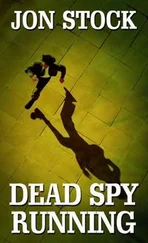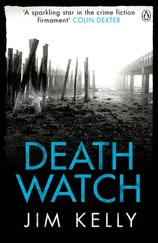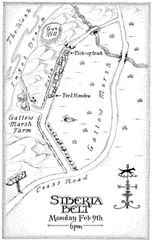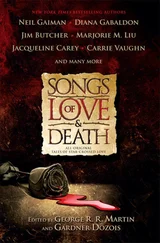Jim Kelly - Death Toll
Здесь есть возможность читать онлайн «Jim Kelly - Death Toll» весь текст электронной книги совершенно бесплатно (целиком полную версию без сокращений). В некоторых случаях можно слушать аудио, скачать через торрент в формате fb2 и присутствует краткое содержание. Жанр: Полицейский детектив, на английском языке. Описание произведения, (предисловие) а так же отзывы посетителей доступны на портале библиотеки ЛибКат.
- Название:Death Toll
- Автор:
- Жанр:
- Год:неизвестен
- ISBN:нет данных
- Рейтинг книги:5 / 5. Голосов: 1
-
Избранное:Добавить в избранное
- Отзывы:
-
Ваша оценка:
- 100
- 1
- 2
- 3
- 4
- 5
Death Toll: краткое содержание, описание и аннотация
Предлагаем к чтению аннотацию, описание, краткое содержание или предисловие (зависит от того, что написал сам автор книги «Death Toll»). Если вы не нашли необходимую информацию о книге — напишите в комментариях, мы постараемся отыскать её.
Death Toll — читать онлайн бесплатно полную книгу (весь текст) целиком
Ниже представлен текст книги, разбитый по страницам. Система сохранения места последней прочитанной страницы, позволяет с удобством читать онлайн бесплатно книгу «Death Toll», без необходимости каждый раз заново искать на чём Вы остановились. Поставьте закладку, и сможете в любой момент перейти на страницу, на которой закончили чтение.
Интервал:
Закладка:
Shaw tore himself away from his own thoughts to answer the solicitor’s question.
‘Sure. But then it’s Christmas. We can all enjoy that,’ he said. He thought Valentine said something then, under his breath, but he couldn’t be sure.
There was a carpet in the corridor outside so they didn’t hear footsteps approaching the door. When it opened Robert Mosse walked in, carrying a long metal safe-deposit box and a slim briefcase. Shaw’s heartbeat raced, and something about the moment made him smile, despite the surprise and all the questions that crowded into his mind.
Mosse froze, but his face didn’t respond, as if each micro-muscle was under direct control from the brain — an impossibility, Shaw knew, but Mosse appeared to have the skill. Only the eyes revealed a life within the skull, taking in Shaw, Valentine and the envelope on the blotter.
Shaw was pleased to see that he looked once back at the door, twice at the window — a classic fear response, checking out the means of escape.
‘Bob,’ said Masters, standing, holding out a hand.
‘Jerry,’ said Mosse. The voice was as perfectly judged as the slate-grey suit, the swept-back lustrous black hair.
‘This is unusual,’ he continued, looking at Shaw and holding out his hand.
Shaw shook it, noting the sandpaper dryness.
‘All will become clear,’ said Masters, smiling. Shaw knew then that Masters was one of those people who manage to get through life without ever realizing they have no ability whatever to sense the emotional temperature of those around them. There was so much tension in the air Shaw expected to see a spark suddenly leap from the eel-shaped letter opener.
Mosse sat, but Shaw noticed his eyes again flicking twice to the door by which he’d entered. He’d have seen Fiona Campbell in reception with Fran and presumed it was a child-protection case. Mosse’s jawline hardened perceptibly — the first time his body had betrayed him.
Masters pressed a buzzer on his desk. A minute later the door opened and Peggy Robins was shown in by the secretary. Shaw hadn’t seen her in reception and guessed she’d been put in a side room with a cup of tea to wait until the last moment. It was thoughtful, and Masters fussed like a family doctor. She sat quickly, didn’t look at anyone, and Shaw was reminded of his first impression: that she was a strong woman, but always braced for a blow. She gathered herself in her seat and then looked at Mosse’s polished black leather shoes, then his face. She knew him instantly, and her mouth fell open.
‘Mrs Robins,’ said Masters. ‘Peggy. Right — all present and correct.’ Again, the beaming inappropriate smile. He slit the envelope open. Valentine massaged his scalp with one hand, aware that the headache stealing from the base of his skull over the cranium was self-inflicted.
Mosse quickly opened the briefcase and checked a note, his head down so that none of them could see his face.
‘Client MM 45/65/82?’ he asked.
‘Yes, indeed,’ said Masters. ‘Sorry — you’d no name until now. That’s it — Christopher Alan Robins.’
Masters began to read the will, Mosse’s eyes fixed on some point in the snowy roofscape outside. The estate had been valued at?13,700. It all went to his mother. It took his solicitor less than a minute to read in full.
‘Now,’ he said, setting the document aside. ‘One other duty. Mr Robins — it seems odd to call him that. I knew his father, you see — John,’ said Masters. ‘He had a shop down on the quay — shoe repair. I always used to call him John …’ He trailed off, looking at each of them in turn, unable to work out why everyone was so silent, so studiedly impatient.
‘Well. Anyway. Christopher had two unusual requests. He asked me in …’ he checked a note on the blotter, ‘in 2002 to take receipt of some items, and to lodge them in our offices for safe keeping until he requested their release. Or, in the event of his death, they would form part of his estate. Two years ago he asked that these same items be transferred to Mr Mosse’s firm but under a client number only — no name. You’ll remember that, Bob?’
Mosse’s chin moved a centimetre in answer.
‘Yes, I’m sure you do,’ Masters continued. ‘He specifically asked me to make sure the signatory should be Mr Mosse himself. And that was undertaken — at an annual fee of thirty-five pounds and seventy pence, I see from my records.’ Again, the mindless smile.
‘And one further alteration — that, upon the reading of the will, these items were to be released into the custody of DI Peter Shaw of the West Norfolk Constabulary.’
Mosse was looking at the metal deposit box, his legs crossed casually at the ankles.
‘Did he say why?’ asked Shaw.
‘He said that would become clear on the day. Yes — those exact words.’
The door opened and the secretary came in with coffee cups, a pot, Nice biscuits. The tension in the room was almost intolerable. Shaw imagined the crockery shattering. She left the tray, retreated.
‘And the other unusual requirement was a statement, lodged with us, to be read on this occasion.’ He leant across the desk and gave Shaw a second envelope. ‘By you, Inspector.’
‘I don’t have to listen to this,’ said Mosse.
Masters missed the intonation, but was quick to respond to the legal niceties.
‘Mr Robins stipulated that the statement was to be read before the contents of the deposit box were transferred. I’m sure it will only take a minute.’
Mosse looked into the middle distance. Shaw tried to imagine just how fast Mosse’s brain must be calculating. If he walked out now he wouldn’t know what he was facing. And why leave, why run, when all the life he’d built was here, in Lynn? Job, money, reputation, family, children, not to mention a shiny black BMW.
‘You might as well stay. You’re going to hear it one way or another,’ said Shaw. Valentine was standing now, staring at Mosse.
Shaw opened the envelope and extracted a single sheet of A4, typed, single spaced.
‘I typed it,’ said Peggy Robins. ‘And signed it.’
Shaw nodded, noting the scrawl at the foot, the two signatures almost merged.
He read.
‘“I know this statement is worthless — that I’m as guilty as Bob, and the rest, of these crimes. But it seems to me — to all of us — that we’ve suffered, paid the price, and he hasn’t. Ever.”’
‘Oh,’ said Masters. ‘Goodness.’ He held up a hand, as if suddenly deciding it shouldn’t be read.
‘It’s all right. Carry on,’ said Mosse. He took out a yellow legal pad from the briefcase and started making a note.
‘“The night those people died in the car, it was Robert Mosse what drove. He was down from Sheffield and he wanted a bit of action. His idea. We went out to Hunstanton and he got the Mini over the ton. We drank — all of us. Bob was taking us home by the back roads, trying to keep the car over eighty — even on the lanes. He didn’t see the T-junction until it was way late. It wasn’t until afterwards that we realized he’d stayed in the car — let us get out, wander round. So those first few days was a nightmare. I didn’t tell you, Mum, did I? I’m sorry for that. And I stayed out — with the others, down at Alex Cosyns’s lock-up. We got the car in there and me and Voycy got a drum of paint from work to respray it — yellow, tractor yellow they called it. Alex was soft on that dog he’d taken from the car. Night of the crash he cried about it — ’bout the old people in the back. He’d taken the dog because he said he wanted something to live. Like I said — soft. Then that evening — the evening the Tessier boy died — Alex took the dog for a walk. When he came back the kid was with him. Alex had tried to tell him that it wasn’t the same dog. But the kid could get it to do stuff — beg, roll over. Odd kid. He wasn’t going anywhere. We let him play with it and decided on a plan: we’d let him go, let him take the dog, sit tight — that would work in our favour when the police came. We’d say it was the driver who was drunk at the crash, but we wouldn’t say who it was. We’d admit the rest. Bob needed to lie low — and we’d fix up an alibi for him on the Westmead.
Читать дальшеИнтервал:
Закладка:
Похожие книги на «Death Toll»
Представляем Вашему вниманию похожие книги на «Death Toll» списком для выбора. Мы отобрали схожую по названию и смыслу литературу в надежде предоставить читателям больше вариантов отыскать новые, интересные, ещё непрочитанные произведения.
Обсуждение, отзывы о книге «Death Toll» и просто собственные мнения читателей. Оставьте ваши комментарии, напишите, что Вы думаете о произведении, его смысле или главных героях. Укажите что конкретно понравилось, а что нет, и почему Вы так считаете.










